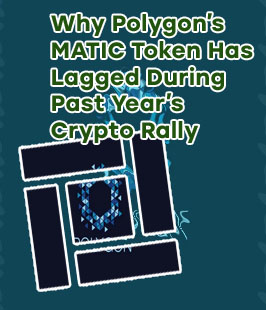Polygon crypto has been gaining popularity in the world of cryptocurrency, offering a solution to scalability issues faced by platforms like Ethereum. To learn more about Polygon and its impact on the crypto space, check out the following articles:
The Rise of Polygon: How This Layer 2 Solution is Revolutionizing Decentralized Finance

Polygon, formerly known as Matic Network, has quickly become a major player in the world of decentralized finance (DeFi). This Layer 2 scaling solution is gaining traction due to its ability to address key issues such as high gas fees and slow transaction speeds on the Ethereum network. By providing a more efficient and cost-effective alternative, Polygon is revolutionizing the way DeFi applications operate.
One of the key features that sets Polygon apart is its scalability. By utilizing sidechains, Plasma chains, and a proof-of-stake consensus mechanism, Polygon is able to significantly increase the throughput of the Ethereum network. This allows for faster transactions and lower fees, making it more accessible for users of all sizes.
Another important aspect of Polygon is its interoperability. Developers can easily port their existing Ethereum-based applications to Polygon with minimal effort, allowing them to take advantage of the network's benefits without having to completely overhaul their projects.
Additionally, Polygon offers a seamless user experience. With its user-friendly interface and intuitive design, navigating the platform is straightforward for both developers and end-users. This accessibility has helped Polygon attract a wide range of projects and users, further solidifying its position in the DeFi space.
Understanding Polygon's Unique Architecture and Its Advantages in the Crypto Ecosystem

Polygon has emerged as a leading player in the crypto ecosystem due to its unique architecture and numerous advantages it offers to users. One of the key features that sets Polygon apart is its use of a Layer 2 scaling solution, which allows for faster and more cost-effective transactions compared to traditional blockchain networks. This is achieved through the use of sidechains, which are connected to the Ethereum main chain, providing a high level of security while also increasing scalability.
Another notable aspect of Polygon's architecture is its support for multiple consensus mechanisms, including Proof of Stake (PoS) and Plasma. This allows for greater flexibility and customization, making it an attractive option for developers looking to build decentralized applications (dApps) on the platform. Additionally, Polygon's architecture is designed to be modular and interoperable, allowing for seamless integration with other blockchain networks and protocols.
The advantages of Polygon's unique architecture are clear. By offering faster transaction speeds, lower fees, and increased scalability, Polygon provides a more efficient and user-friendly experience for crypto users. Furthermore, its support for multiple consensus mechanisms and interoperability makes it a versatile platform that can adapt to the changing needs of the crypto ecosystem.
Exploring the Potential Use Cases of Polygon in Real-World Applications and Industries
With its ability to significantly increase transaction speeds <a href"free-crypto-wallet-14">Crypto wallet app and reduce costs, Polygon is being explored for various applications beyond the realm of decentralized finance (DeFi).